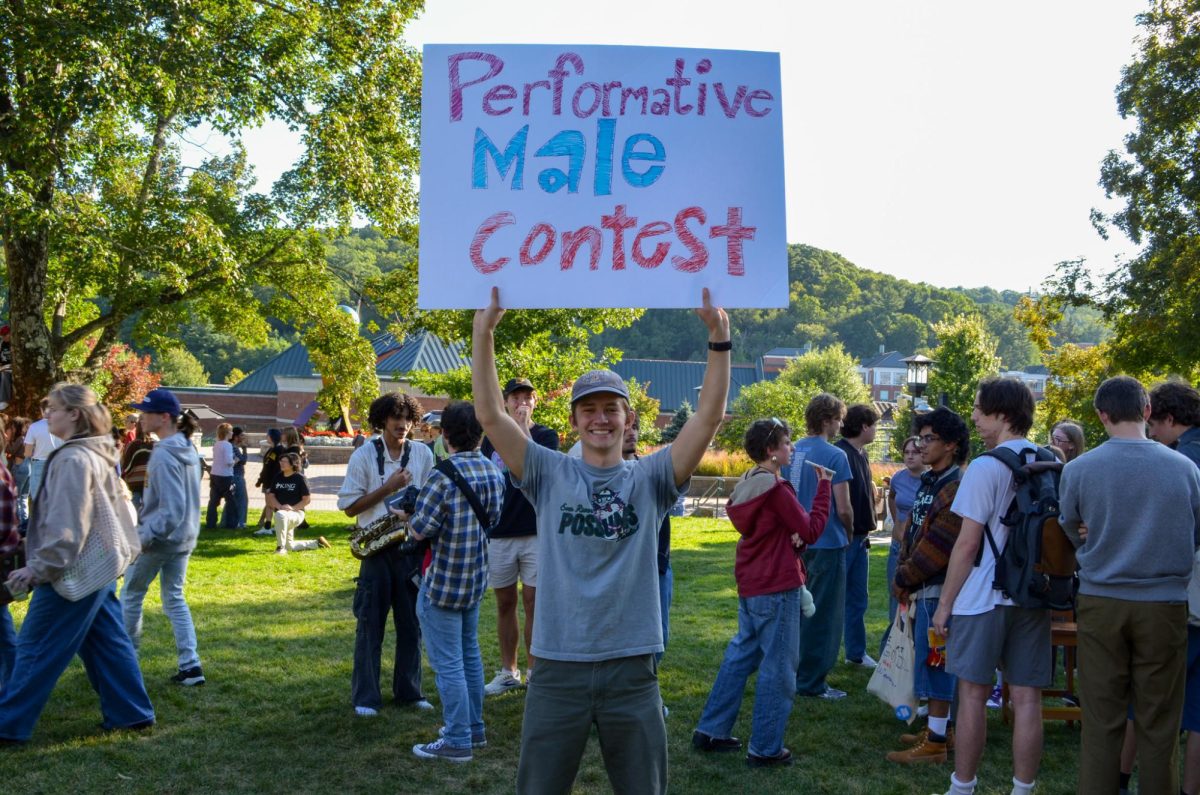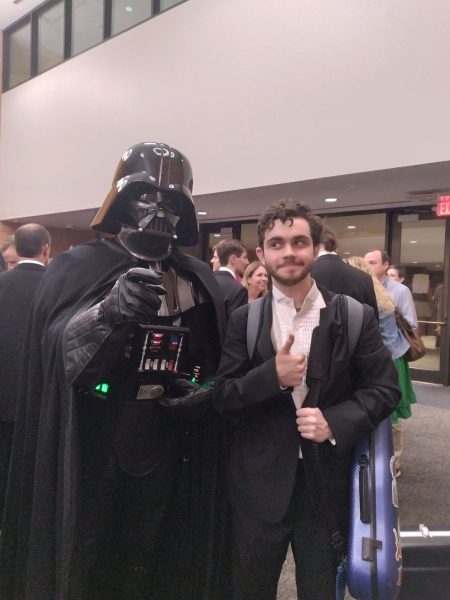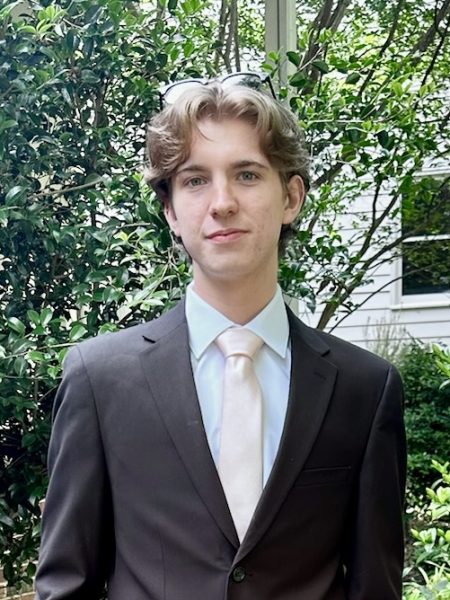Characterized by lurking in coffee shops, reading feminist literature, carrying tote bags and listening to Clairo, performative males, and an audience of roughly 500 people, filled Sanford Mall Sunday. Their purpose was to hold a contest to determine who among them was the most performative male in Boone.
Ray McCloskey, a sophomore geography major, was the organizer of the event. He described the contest as a way to call out what he sees as the “authenticity crisis” of men in his generation.
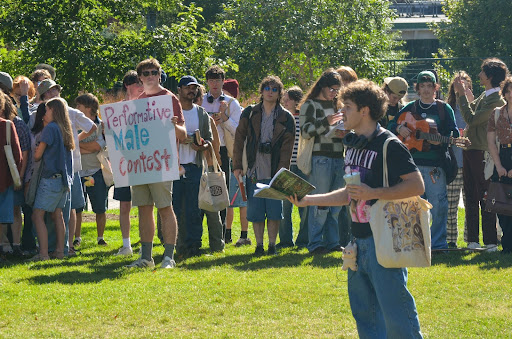
“You have to ask yourself if you’re doing something for yourself or for other people,” McCloskey said.
What does the “performative male” look like? The New York Times defines this trending phenomenon as a man who has formed “his aesthetic in a way that he thinks might render him more likable to progressive women.”
Mocking this aesthetic has become a movement in itself. Lampooning posers is an old practice, but today’s iteration is interwoven with irony. In a sense, the “performative male” is a trend about trends.
Starting at 4:30 p.m., competitors were given around 20 seconds each to show off. This vague direction given to the competitors made for diverse performances. From yelling, “I met God, she was Black,” to showing off their Sylvia Plath novels to announcing a collaboration with the biology department to end periods once and for all, competitors had complete creative freedom.
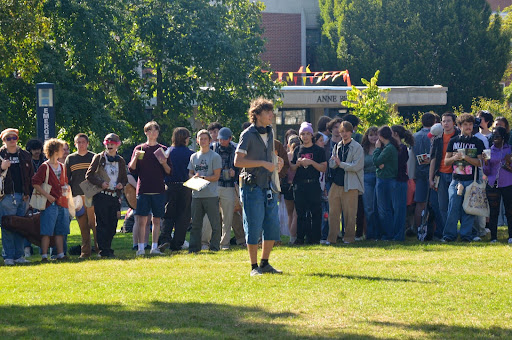
Some audience members noticed Boone’s rustic, artsy aesthetic already fits the performative stereotype. Indeed, Boone had a presence of indie films, black coffee and feminist literature long before the first batch of Labubus arrived in a shipping container from Hong Kong.
“We were meant to host this contest,” said Jadyah Dancy, a sophomore political science major. “Performative men are all that exist here.”
Many of the acts incorporated guitars, imitating the rockstar skater boy archetype. Lucas Jumelles, a freshman music performance major, brought his saxophone to play jazz standards and “From The Start” by Laufey.
As the performative crusaders persisted through the afternoon, attendance grew exponentially. Observing from the back of the crowd, Kinsey Smith, a sophomore accounting major, said she wondered whether authenticity was possible in an age of mass media.
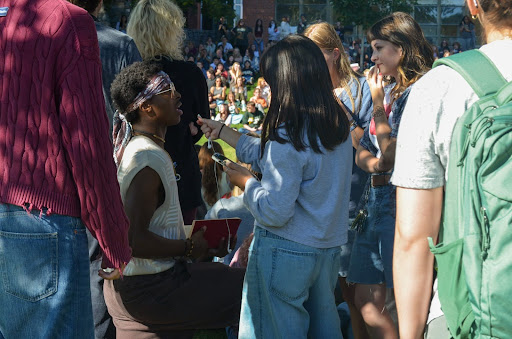
“Especially because of the internet, we’re more influenced by trends than we like to admit,” Smith said. “This contest is a lighthearted way to admit that you are taking part in a trend.”
For some men, feminist ideals and respecting women is part of the performance. For sophomore computer science major Jesus Sisniega-Serrano, it’s not.
“I personally don’t believe in the binary, anyways. I genuinely do believe in the emancipation of women and their rights coming to fruition,” Sisniega-Serrano said while sporting a tote bag reading, “I met God, she’s a woman.”
Sisneiga-Serrano said he wishes more of these “performative men” would believe in the ideals their aesthetic assumes.
“I’ve met some people who, contrary to how they look, they do not believe the same stuff their looks would imply,” Sisniega-Serrano said.
Hazel Grine, a sophomore social work major, performed as their drag persona Julian Coda, who threw period products into the audience, with poor aim so as to not, as Grine said, “reinforce gender roles.” They said this movement, which partially started to make fun of men, has looped back into being misogynistic.
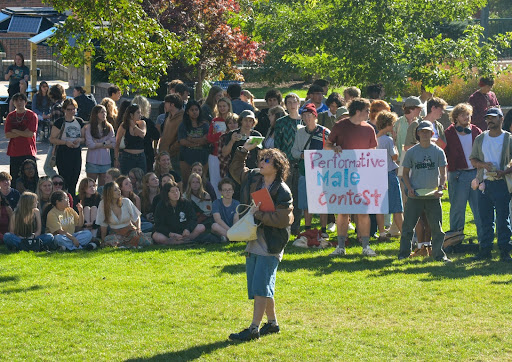
“We’re telling these men that we’ve deemed them as performative for doing anything that we view as feminine or anything in alliance to women,” Grine said. “If we write all that behavior off as performative, we’re further enforcing a divide.”
Grine said people should be making less fun of the performative male archetype.
“I think men do need to be reading feminist literature and they do need to be caring about what happens to women,” Grine said. “I wish that more men did these things, not performatively.”
The competition ended at 5:30 p.m., with McCloskey closing the festivities by politely requesting the women in the audience to stand. He took a knee and announced the real winner of the contest: women everywhere.

